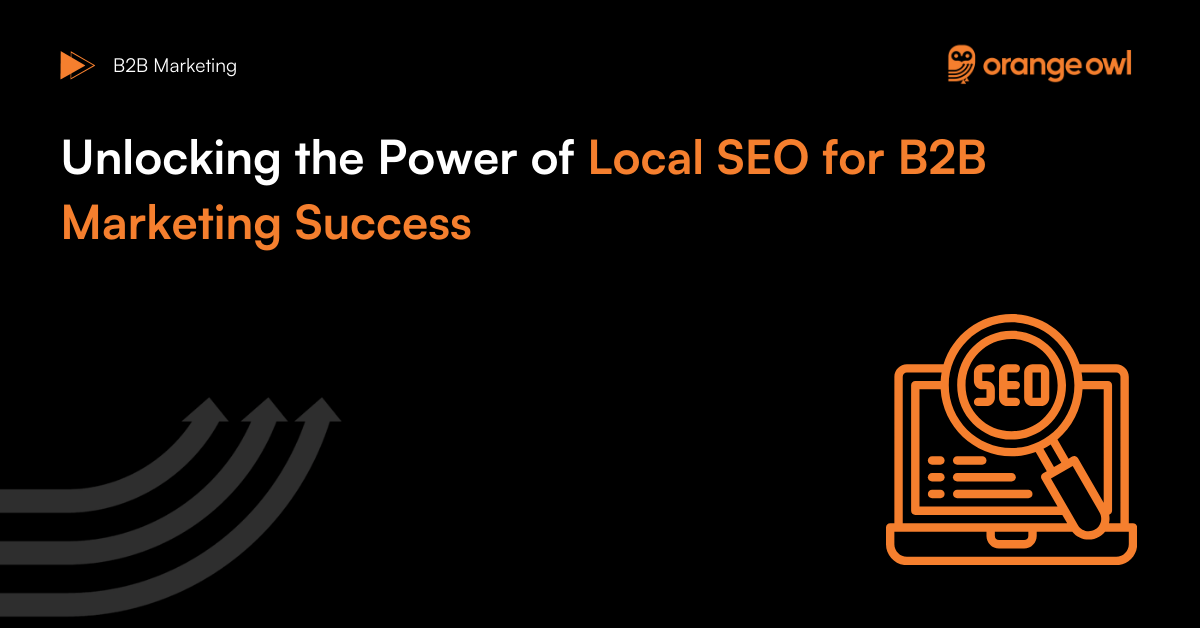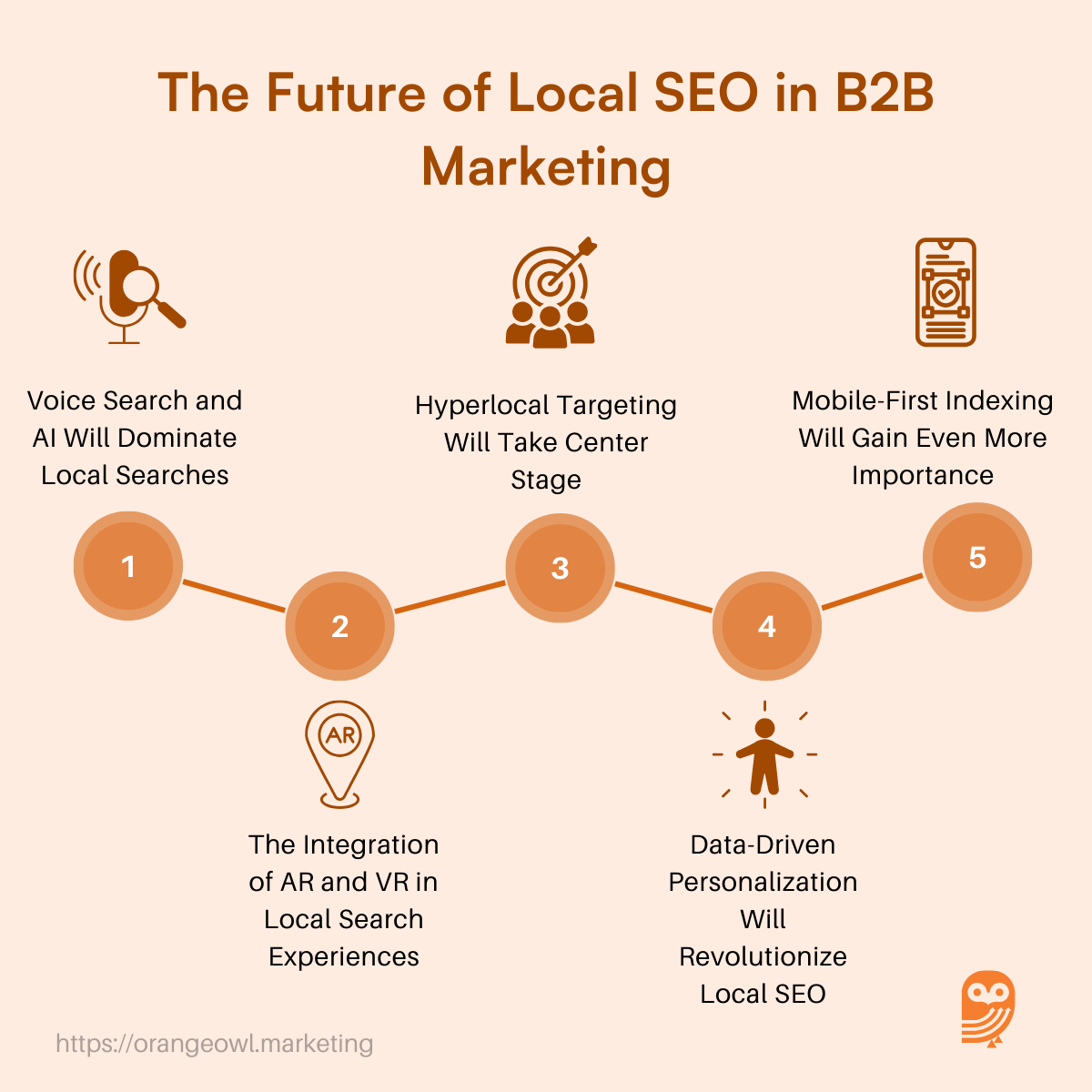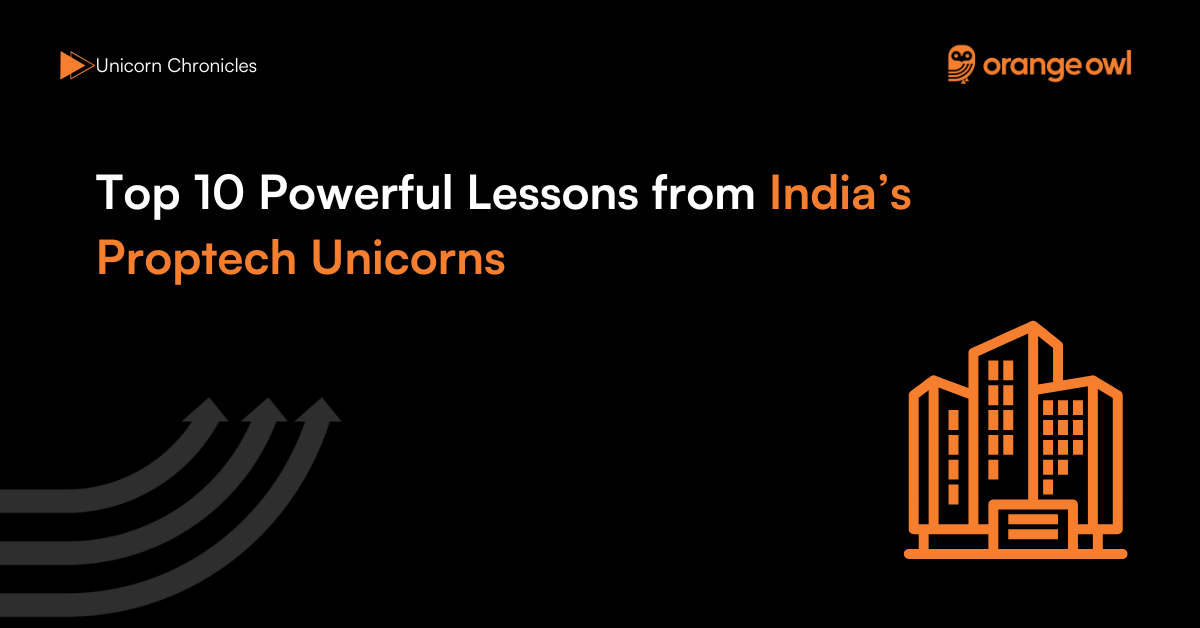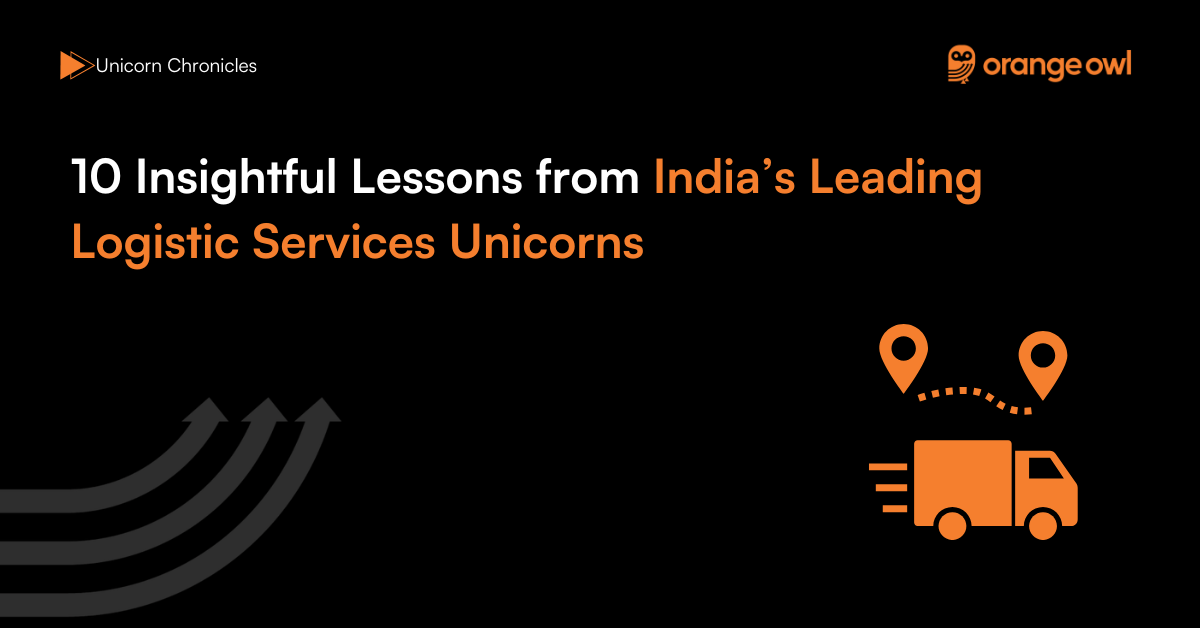Unlocking the Power of Local SEO for B2B Marketing Success
Vivek Goel
December 3, 2024

Table of Contents
What is Local SEO?
In today’s competitive digital landscape, Local SEO has become a cornerstone for businesses aiming to establish a robust presence within their local markets. While Local SEO is often associated with B2C businesses like restaurants or retail shops, its potential for B2B marketing is equally transformative. Local SEO enables B2B companies to connect with nearby businesses, decision-makers, and stakeholders, ensuring they appear prominently in searches for services, products, or solutions relevant to their industry and geography.
For B2B marketers, Local SEO isn’t just about visibility—it’s about building trust, nurturing relationships, and positioning the business as a go-to solution within a specific locale. Whether you’re a logistics company targeting regional clients or a software provider catering to local enterprises, Local SEO allows you to stand out and deliver targeted, impactful messaging to the right audience.
This blog explores the significance of Local SEO for B2B marketing, delves into strategies to optimize your local presence, and highlights how leveraging Local SEO can help businesses stay ahead in a competitive environment.
Why Local SEO is Crucial for B2B Marketing
B2B businesses thrive on relationships and trust, especially within defined geographic boundaries. Local SEO is not just about improving online visibility—it is a strategic tool for reaching the right audience, building credibility, and driving meaningful engagement. Here’s an in-depth look at why Local SEO is indispensable for B2B companies:
1. Increased Visibility in Local Searches
Many B2B buyers turn to search engines to find suppliers, vendors, or service providers within their region. These searches often have a high degree of intent, such as “industrial equipment suppliers near me” or “IT support for small businesses in [City].” By implementing Local SEO, your business gains prominent placement in search engine results pages (SERPs) for location-based queries.
This visibility ensures that when potential clients are actively seeking solutions, your business appears as a top option. Features like Google’s Local Pack or Google Maps listings provide additional exposure, enabling prospects to see your location, reviews, and contact details at a glance. Ultimately, this increases the likelihood of inquiries, calls, and meetings with decision-makers.
2. Enhanced Trust and Credibility
Local SEO techniques, such as optimizing your Google Business Profile (GBP), not only boost visibility but also build trust. A well-maintained GBP provides potential clients with essential information like business hours, directions, customer reviews, and photos of your premises or work.
For B2B clients, this transparency reassures them of your business’s legitimacy and reliability. Positive reviews and high ratings serve as social proof, reinforcing your reputation as a trustworthy local partner. Moreover, participating in local industry events and publishing case studies about successful local projects can further establish your authority within the community.
3. Better Targeting of Local Decision-Makers
One of the biggest advantages of Local SEO for B2B businesses is its precision targeting. Unlike broad digital marketing campaigns, Local SEO allows you to focus on the specific regions, industries, or business clusters that align with your goals.
For example:
- A logistics company can target manufacturers in a nearby industrial area.
- An IT services provider can attract clients in a growing tech hub within their city.
Local SEO helps you create tailored content, ads, and promotions that speak directly to the needs of these audiences. Tools like localized keyword research and demographic analysis further refine your strategy, ensuring your efforts resonate with key decision-makers who are likely to convert.
4. Cost-Effective Lead Generation
Traditional marketing methods, such as print advertising or trade shows, often involve high costs with unpredictable results. Local SEO, by contrast, offers a cost-effective alternative that delivers measurable ROI.
By optimizing for local search terms, your business attracts prospects who are already interested in your offerings, reducing the need for outbound marketing efforts. Features like localized landing pages, call tracking, and targeted ad campaigns allow you to track performance and continually refine your approach.
For example:
- An engineering firm that ranks highly in “best engineering consultants in [City]” will likely see an influx of inquiries without incurring the costs of physical marketing campaigns.
Over time, Local SEO helps generate a steady stream of qualified leads, ensuring a higher likelihood of conversions and long-term relationships.
Key Strategies for Implementing Local SEO for B2B Marketing
1. Optimize Your Google Business Profile (GBP)
Your Google Business Profile is the cornerstone of your Local SEO strategy. Ensure that your profile is fully optimized with accurate business information, including:
- Business name, address, and phone number (NAP).
- Categories and attributes relevant to your B2B services.
- High-quality images of your office or operations.
- Encouraging and responding to reviews.
For B2B companies, adding details like services offered, operating hours, and even case studies can help prospective clients better understand your value.
2. Target Local Keywords
Local keywords are essential for improving search rankings. Identify keywords combining your services and geographic location, such as:
- “Industrial equipment suppliers in Houston.”
- “IT solutions for businesses in Chicago.”
Tools like Google Keyword Planner or SEMrush can help discover relevant local keywords. Integrate these keywords into your website content, meta descriptions, and blog posts to enhance Local SEO.
3. Build High-Quality Local Backlinks
Backlinks from reputable local organizations or industry associations can significantly boost your Local SEO. Strategies include:
- Partnering with local B2B chambers of commerce.
- Sponsoring local business events or trade shows.
- Collaborating with nearby B2B influencers or thought leaders.
Local backlinks not only improve SEO rankings but also establish credibility within your community.
4. Create Localized Content
Producing localized content helps your B2B business resonate with local audiences. Examples include:
- Blog posts addressing industry challenges specific to your region.
- Case studies showcasing successful partnerships with local businesses.
- Video testimonials from local clients.
For instance, a blog titled “Top Challenges Faced by Manufacturing Businesses in California and How We Helped” can target local audiences while showcasing expertise.
5. Mobile Optimization for Local Searches
Most local searches are conducted on mobile devices. Ensure your website is mobile-friendly by:
- Using responsive design.
- Ensuring fast loading times.
- Simplifying navigation for on-the-go users.
A mobile-optimized site enhances the user experience and boosts Local SEO rankings.
6. Leverage Location-Specific Landing Pages
Create landing pages targeting specific locations where your B2B services are available. For example, a B2B logistics company operating in Texas can create pages for each city, such as “Dallas Logistics Solutions” or “Austin Freight Services.”
These pages should include local keywords, testimonials from local clients, and contact details tailored to each region.
7. Encourage and Manage Online Reviews
Positive reviews from local businesses can significantly influence potential clients. Encourage satisfied customers to leave reviews on platforms like Google, Yelp, or industry-specific directories.
Responding promptly and professionally to reviews—whether positive or negative—demonstrates excellent customer service and builds trust.
Advanced Local SEO Tactics for B2B Marketing
1. Use Schema Markup for Local SEO
Schema markup provides search engines with structured data about your business. Adding local business schema to your website helps search engines display rich snippets, such as business hours and customer ratings, improving your visibility in local search results.
2. Integrate Local SEO with Account-Based Marketing (ABM)
B2B companies can combine Local SEO with ABM strategies by targeting high-value accounts in specific locations. Tailor your Local SEO efforts to target decision-makers from these accounts through personalized content and location-specific offers.
3. Monitor and Improve Local SEO Metrics
Use tools like Google Analytics, Google Search Console, and Local Falcon to track the performance of your Local SEO campaigns. Monitor metrics such as:
- Website traffic from local searches.
- Click-through rates on Google Business Profile listings.
- Conversion rates from local landing pages.
The Future of Local SEO for B2B Marketing
The landscape of Local SEO is constantly evolving, driven by advancements in technology, changes in consumer behavior, and the growing importance of local intent in search algorithms. For B2B companies, adapting to these changes is critical for staying competitive and relevant in their markets.

1. Voice Search and AI Will Dominate Local Searches
With the rise of voice assistants like Siri, Alexa, and Google Assistant, voice search is becoming an integral part of local search behavior. B2B buyers are increasingly using conversational queries such as “Who provides industrial supplies near me?” or “Best logistics providers in New York.” Optimizing for long-tail keywords and natural language will be essential for future-proofing your Local SEO strategy.
2. Hyperlocal Targeting Will Take Center Stage
The trend toward hyperlocal targeting is set to redefine Local SEO. Businesses will need to focus on micro-locations, tailoring their messaging and offerings for specific neighborhoods, districts, or even industrial zones. Hyperlocal content, such as case studies or testimonials from businesses in the same area, will play a pivotal role in attracting highly relevant leads.
3. Mobile-First Indexing Will Gain Even More Importance
As search engines prioritize mobile-friendly websites, ensuring your site is optimized for mobile devices will remain a crucial factor in Local SEO. For B2B businesses, this means creating seamless mobile experiences, from easy navigation to fast loading times, as more clients rely on smartphones for research and decision-making.
4. The Integration of AR and VR in Local Search Experiences
Augmented reality (AR) and virtual reality (VR) are poised to become part of the Local SEO toolkit. For example, AR could allow clients to visualize your office space or equipment virtually, while VR can enhance product demonstrations or facility tours, offering an immersive experience for potential B2B buyers.
5. Data-Driven Personalization Will Revolutionize Local SEO
AI-powered tools and advanced analytics will enable businesses to deliver personalized Local SEO strategies. B2B companies can analyze search behavior and preferences to offer customized solutions, making their messaging more relevant to local prospects.
Embracing these trends will help B2B businesses stay ahead of the curve, ensuring they maintain visibility, relevance, and authority in their local markets.
Common Mistakes in Local SEO for B2B Marketing and How to Avoid Them
While Local SEO can deliver incredible results for B2B businesses, certain mistakes can hinder its effectiveness. Avoiding these pitfalls ensures your efforts are optimized for success.
1. Neglecting Google Business Profile Optimization
A poorly managed Google Business Profile (GBP) is one of the most common Local SEO mistakes. Missing information, outdated business hours, or incorrect contact details can confuse potential clients and reduce trust.
How to Avoid It:
- Regularly update your GBP with accurate NAP (Name, Address, Phone) details.
- Add high-quality images of your office, team, and projects.
- Encourage customers to leave reviews and respond to them professionally.
2. Using Generic Keywords Instead of Localized Keywords
Failing to target location-specific keywords reduces your visibility in local searches. Many businesses make the mistake of focusing only on general industry terms without including geographic markers.
How to Avoid It:
- Perform keyword research to identify phrases combining your services and location (e.g., “B2B marketing agency in Chicago”).
- Incorporate these keywords naturally into your website content, meta tags, and blog posts.
- Create dedicated landing pages for each service area or location.
3. Ignoring Mobile Optimization
With the majority of local searches conducted on mobile devices, having a website that isn’t mobile-friendly is a major misstep. Slow-loading pages, poor navigation, and unresponsive designs can drive prospects away.
How to Avoid It:
- Use responsive web design to ensure your site adapts to all devices.
- Optimize page load times by compressing images and leveraging fast hosting services.
- Include click-to-call buttons and easy navigation for mobile users.
4. Overlooking Online Reviews and Reputation Management
Many B2B companies underestimate the importance of online reviews. Negative reviews or a lack of reviews can deter potential clients.
How to Avoid It:
- Actively request reviews from satisfied customers.
- Monitor and respond to reviews, addressing concerns with professionalism.
- Use positive reviews in marketing materials and on your website to build trust.
5. Failing to Maintain Consistent NAP Information
Inconsistencies in your Name, Address, and Phone details across online platforms confuse search engines and customers. This mistake can hurt your local search rankings.
How to Avoid It:
- Audit your NAP information on all directories, including Yelp, LinkedIn, and local business listings.
- Use tools like Moz Local or BrightLocal to track and correct inconsistencies.
- Ensure all NAP details align with those on your website.
6. Neglecting Localized Content Creation
Publishing generic content without tailoring it to local audiences diminishes your relevance. B2B clients appreciate content that addresses their specific needs and challenges in their region.
How to Avoid It:
- Create blog posts, case studies, and guides focusing on regional trends, challenges, and opportunities.
- Include localized keywords and references to your area.
- Share testimonials or success stories from local clients to demonstrate your impact.
7. Underestimating the Importance of Backlinks
Ignoring backlinks from local websites, directories, and partners is a missed opportunity to boost your local search authority.
How to Avoid It:
- Partner with local chambers of commerce or industry organizations for backlink opportunities.
- Get listed in reputable local directories.
- Reach out to local blogs or news sites for features or collaborations.
8. Not Tracking and Measuring Local SEO Performance
Many businesses fail to monitor their Local SEO efforts, making it difficult to identify what works and what doesn’t.
How to Avoid It:
- Use tools like Google Analytics and Google Search Console to track local search traffic.
- Monitor rankings for location-specific keywords.
- Regularly evaluate your GBP insights to understand how customers find and interact with your profile.
9. Overstuffing Keywords
Some businesses attempt to improve rankings by overloading their website content with keywords. This practice not only harms readability but can also lead to penalties from search engines.
How to Avoid It:
- Use keywords naturally within your content.
- Prioritize user experience over keyword density.
- Focus on creating valuable and engaging content for your audience.
10. Ignoring Voice Search Optimization
As voice search becomes more prevalent, ignoring conversational and question-based queries is a mistake.
How to Avoid It:
- Optimize for long-tail keywords and natural language queries.
- Include FAQs on your website to address common questions.
- Ensure your business is easily discoverable through voice search-enabled devices.
Conclusion: Why Local SEO is a Must for B2B Marketing
Local SEO is no longer just an add-on for B2B marketing—it’s an essential pillar for success. It offers an unparalleled opportunity to connect with local decision-makers, establish trust, and position your business as a leader within your region. By implementing Local SEO strategies such as optimizing your Google Business Profile, targeting location-specific keywords, and creating localized content, you can significantly enhance your visibility and attract high-quality leads.
As the digital landscape continues to evolve, staying updated with emerging trends like voice search, hyperlocal targeting, and AI-driven personalization will be key to leveraging Local SEO effectively. Investing in this strategy not only boosts immediate engagement but also builds a long-term foundation for growth, ensuring your B2B business thrives in an increasingly competitive marketplace.
Incorporate Local SEO into your marketing efforts today, and watch your B2B business unlock new levels of success in its local and regional markets.
Frequently Asked Questions on Local SEO
Local SEO is the process of optimizing your online presence to attract business from relevant local searches. For B2B marketing, it is vital as it ensures your company appears in searches made by potential clients in your geographic area. Unlike traditional SEO, Local SEO focuses on connecting you with nearby businesses, enhancing your visibility among local decision-makers who are likely to need your services.
Local SEO offers higher precision in targeting specific audiences compared to traditional methods like print or TV ads. It allows B2B companies to connect with decision-makers actively searching for services in their area, often leading to higher-quality leads. Additionally, it is cost-effective and ensures sustained visibility with proper optimization.
Key elements include:
- Optimizing your Google Business Profile with accurate information and engaging content.
- Using location-specific keywords in your website and blog posts.
- Building local backlinks from directories and partnerships.
- Gathering and responding to customer reviews.
- Creating content tailored to local business challenges and trends.
B2B companies can optimize their Google Business Profile by:
- Ensuring all details (Name, Address, Phone Number, Website) are accurate and up to date.
- Adding high-quality images showcasing their business.
- Using relevant keywords in the business description.
- Posting regular updates about services, events, or offers.
- Actively collecting reviews from satisfied clients and addressing feedback.
Mobile optimization is critical as most local searches are conducted on smartphones. A mobile-friendly website ensures a seamless experience for users, encouraging them to engage further. Features like fast load times, easy navigation, and click-to-call options are particularly valuable for B2B clients who may need quick information on the go.
Local keywords include geographic identifiers such as city names, neighborhoods, or regions, making them more specific. For example, instead of “digital marketing agency,” a local keyword would be “digital marketing agency in New York City.” These keywords help B2B companies connect with local clients actively seeking their services, driving more relevant traffic.
Online reviews play a dual role in Local SEO: they enhance trust among potential clients and signal search engines about your business’s credibility. Positive reviews can significantly improve your visibility in local search results and encourage other businesses to choose your services over competitors.
Content strategies for enhancing Local SEO include:
- Writing blogs focused on local industry trends or challenges.
- Publishing case studies showcasing work done for local clients.
- Creating video content highlighting local events or partnerships.
- Incorporating location-specific keywords naturally into all content.
- Developing FAQ pages that address local audience queries.
B2B companies can build local backlinks by:
- Partnering with local industry organizations, chambers of commerce, or business associations.
- Getting listed in trusted local directories.
- Collaborating with local blogs or news outlets for content mentions.
- Hosting events or webinars and encouraging attendees to link back to their site.
Tracking Local SEO effectiveness involves:
- Monitoring local search traffic and keyword rankings using tools like Google Analytics or SEMrush.
- Reviewing insights from the Google Business Profile dashboard, including search queries and user actions.
- Measuring the number of new leads and conversions originating from local searches.
- Evaluating the quality and quantity of online reviews.
- Analyzing trends in website engagement metrics, such as time spent and bounce rates, from local visitors.


